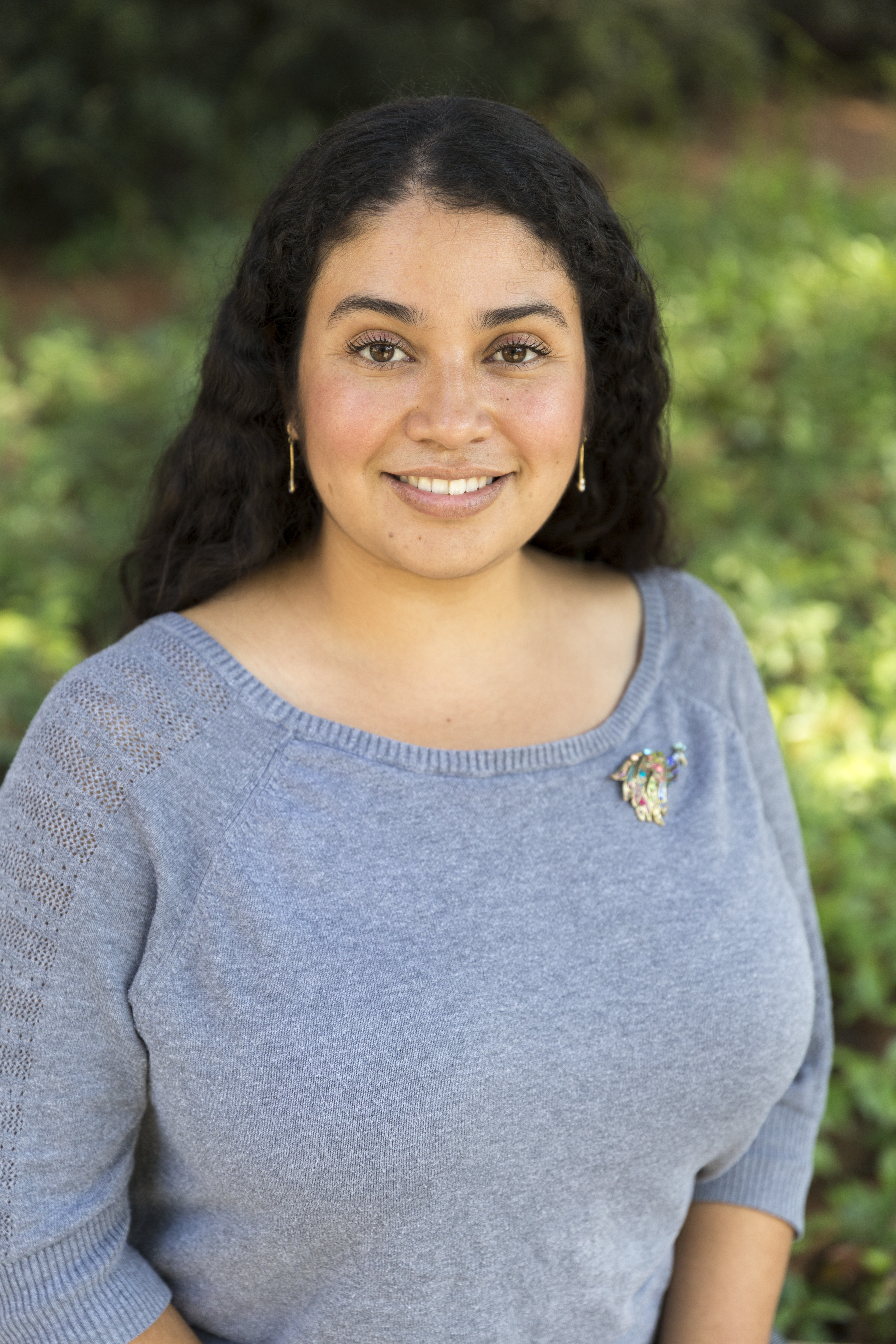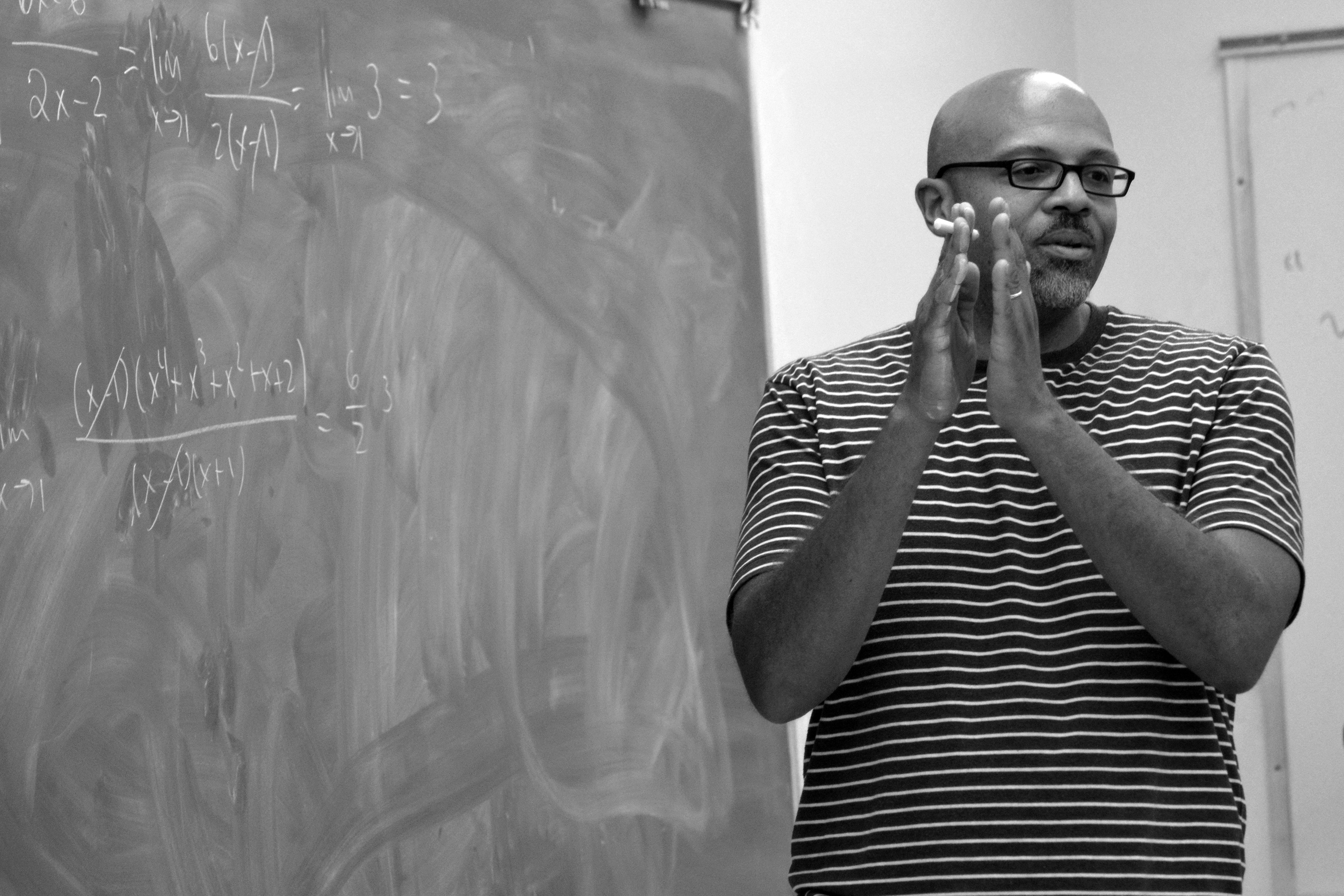|
|
Register
Online Registration is now closed. You can register onsite the morning of the conference.
Spring 2022 SoCal-Nev Section Meeting
Pomona College
Saturday, April 23, 2022, 8:30am - 4:30pm
(Directions and Map)
Zoom link for meeting
(only participants who registered for the meeting will be admitted)
Tentative Schedule
- 8:30-12noon Registration
Courtyard of Estella Laboratory - 8:30-10:30 Poster Presenter check-in
Courtyard of Estella Laboratory
- 9:15-9:30 Welcome Remarks and Land Acknowledgment
Argue Auditorium in Estella Laboratory (Room 1051)
- 9:30-10:30 Invited Address by Cynthia Flores, CSU Channel Islands
From local to peridynamic modeling and theoretical aspects of nonlocal Helmholtz-Hodge decompositions of a vector field
Argue Auditorium (Room 1051)
- 10:30-11:00
Section Business Meeting
Presentation of 2022 Section Distinguished Teaching Award
Argue Auditorium (Room 1051)
- 11:00 -12noon Student Poster Session
Poster Titles and Abstracts
Organized by Ryan DeMoss, California Lutheran University
Courtyard of Estella Laboratory
- 12:00-1:30 Lunch
Community venues or bring your own and have a picnic on the green
- 1:30-1:40 AWM Announcements
Shanna Dobson, CSU Los Angeles
Argue Auditorium (Room 1051)
- 1:40-2:00 SPECTRA Announcements
Argue Auditorium (Room 1051)
- 2:00-3:00 Invited Address by Robin Wilson, CSU Pomona
Recipient of the 2021 SoCal-Nevada Section Distinguished Teaching Award
Moving towards a Culturally Responsive Pedagogy for the Undergraduate Mathematics Classroom
Argue Auditorium (Room 1051)
- 3:00-3:30 Presentation of Student Poster Session prizes and certificates and Final Remarks
Argue Auditorium (Room 1051)
- 3:30-4:30 Community Session and Informal Gathering
Courtyard of Estella Laboratory
- 4:30 Meeting Adjourns
Directions and Maps
The conference will be held in the Estella Laroratory located at 610 N. College Ave on the corner of N. College and E 6th St. Pomona College's Interactive Map can be used both to identify sites on campus, but also for directions to the campus from your location.
Street parking is plentiful and free. We recommend parking along 6th St., 7th St. or College Way.
Lunch
There are several local restaurants within walking distance, and attendees are also welcome to bring their lunch and each outside near the conference site.
The Clairmont Village is the closest location. The Clairmont Village Chamer of Commerce has a restaurant guide with links to local restaurants and a map as well. Tripadvisor also lists nearby restaurants with a map.
COVID Protocols
The Section Meeting will be following the protocols of the MAA and the local guildelines of Pomona College.
Pomona College has the following COVID-19 guidelines (https://www.pomona.edu/covid-19/event-guidelines):
[] Attendees will be asked to demonstrate vaccination status by showing a copy of their vaccination card upon entry. We will not retain this information.
[] All individuals, including guest speakers, are required to wear a mask indoors regardless of vaccination status.
[] Attendees are required to wear masks outdoors, regardless of vaccination status, when a group of 50 or more people are engaged in “active” events, such as the poster session.
Registration Fees
| Pre-Registration |
| Nonmember |
$25 |
| MAA Member |
$20 |
| Virtual: Online streaming of main talks |
$10 |
| Student |
$5 |
Student poster presenter (2 free registrations per poster included as part of the poster application process) |
$0 |
On-site registration will be available for the meeting, but is $30 for non-students (with a $5 discount for paying by cash or check) and $10 for students.
Register on-line
Online Registration is now closed.
Questions about registration can be directed to Youngsu Kim, the meeting coordinator.
|
|
Cynthia Flores is an American Latina recognized nationally as a 2019 Diverse: Issues in Higher Education “Emerging Scholar” whose parents migrated from El Salvador. She grew up in Los Angeles, CA, in the Pico-Union community, working at local outdoor swapmeets every weekend. Inspired by her hard-working family, she received her mathematics BS and MS from California State University Northridge while receiving support and mentorship from the PUMP Program (Preparing Undergraduates through Mentoring for PhDs. In 2014 she completed a Ph.D. in mathematics from the University of California Santa Barbara in dispersive partial differential equations. She then joined the faculty at California State University Channel Islands, where she enjoys teaching ordinary and partial differential equations and contributing to the Dolphin community. Her activities include introducing new technologies to the classroom, supervising undergraduate research, collaborating on NSF-funded grants, and working with community partners in applied mathematics projects. She has been inspired by several mentors and advisors and aims to continue their shared work and legacy in creating opportunities for diversity within the mathematics community. |
From local to peridynamic modeling and theoretical aspects of nonlocal Helmholtz-Hodge decompositions of a vector field
Do you remember those operators from vector calculus: gradient, divergence, and curl? This talk will discuss some of the classical applications of these vector operators and their limitations when used to understand the modeling of discontinuous phenomena. Moreover, we introduce nonlocal theories in the mechanics of solids where the propagation of cracks and fractures hinders the use of classical differential operators. By replacing these with integral operators, nonlocal frameworks allow the consideration of solutions to the peridynamics equation of motion with little to no regularity. Moreover, a collection of nonlocal tools can be identified that is useful for analyzing the Helmholtz-Hodge Decompositions (HHD) of a vector field into its nonlocal divergence-free and curl-free components. Finally, we will discuss industrial applications, including a materials model for capturing the damage and fractures of metals due to corrosion and new avenues to apply nonlocal ideas in social science settings.
|
|
Dr. Robin Wilson is a Professor in the Department of Mathematics and Statistics at California Polytechnic University Pomona. He finished his PhD at UC Davis and he joined the faculty at Cal Poly Pomona in 2007 after an appointment as a UC President’s Postdoctoral Scholar in the Department of Mathematics at UC Santa Barbara. He has also been a Visiting Professor at Georgetown University and Pomona College. Dr. Wilson is currently Co-Director of the California Math Project at Cal Poly Pomona, a program that supports the professional development of K-12 teachers. He is also Co-Director of the Bolstering the Advancement of Masters in Mathematics (BAMM!) Program. His current research interests include both low-dimensional topology and mathematics education. |
Moving towards a Culturally Responsive Pedagogy for the Undergraduate Mathematics Classroom
Education researchers, mathematics education researchers, and mathematicians working in the scholarship of teaching and learning have provided many different tools that undergraduate mathematics faculty can draw on to support the most marginalized students in their classrooms. Often these students are Black, Latinx, Pacific Islander, Native American, or come from poor communities, and often these practices that focus on increasing the academic success and building the identities of the most underserved students in our classrooms benefit everyone. In this talk we will explore some of the literature on frameworks, practices, and principles that begin to show how we can incorporate culturally sustaining, anti-deficit, and re-humanizing pedagogies into mathematics teaching at the undergraduate level.
Student Poster Session
Students (undergraduate and graduate) are invited to submit short proposals for the Poster Session of the Spring 2022 Section Meeting of the MAA, taking place on Saturday, April 23 at Pomona College.
Here are some ideas of what students can present:
- Results of masters thesis, honors, senior, or independent study projects
- Results of classroom projects or modeling contests
- Results of REUs or other summer research programs
- Historical investigations in pure or applied mathematics
- Solutions of problems from the Putnam Exam or from the Monthly or other journals
Applications to present in either the poster session or in the contributed paper session are submitted online .
Applications include submitting an abstract (max 150 words) and are be due by 12 noon on Friday April 15, 2022.
The application to submit a poster constitutes registration for the conference (up to two presenters per poster). Additional presenters beyond two should register for the meeting through the online or mail in regsitration.
The Student Resources page of the MAA website has useful articles about writing an abstract and giving presentations. Be sure to check it out for helpful tips!
Direct questions to Ryan DeMoss
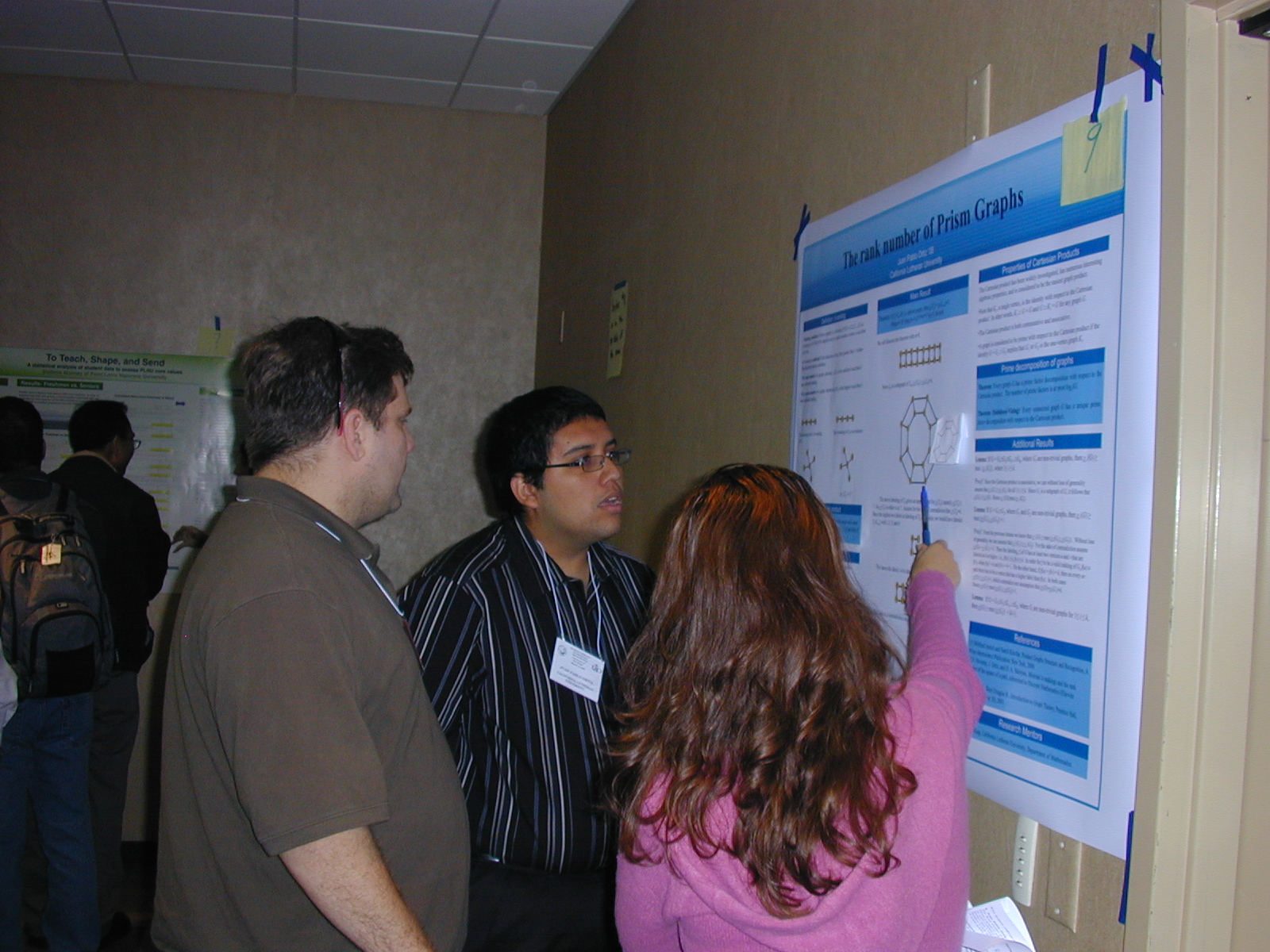
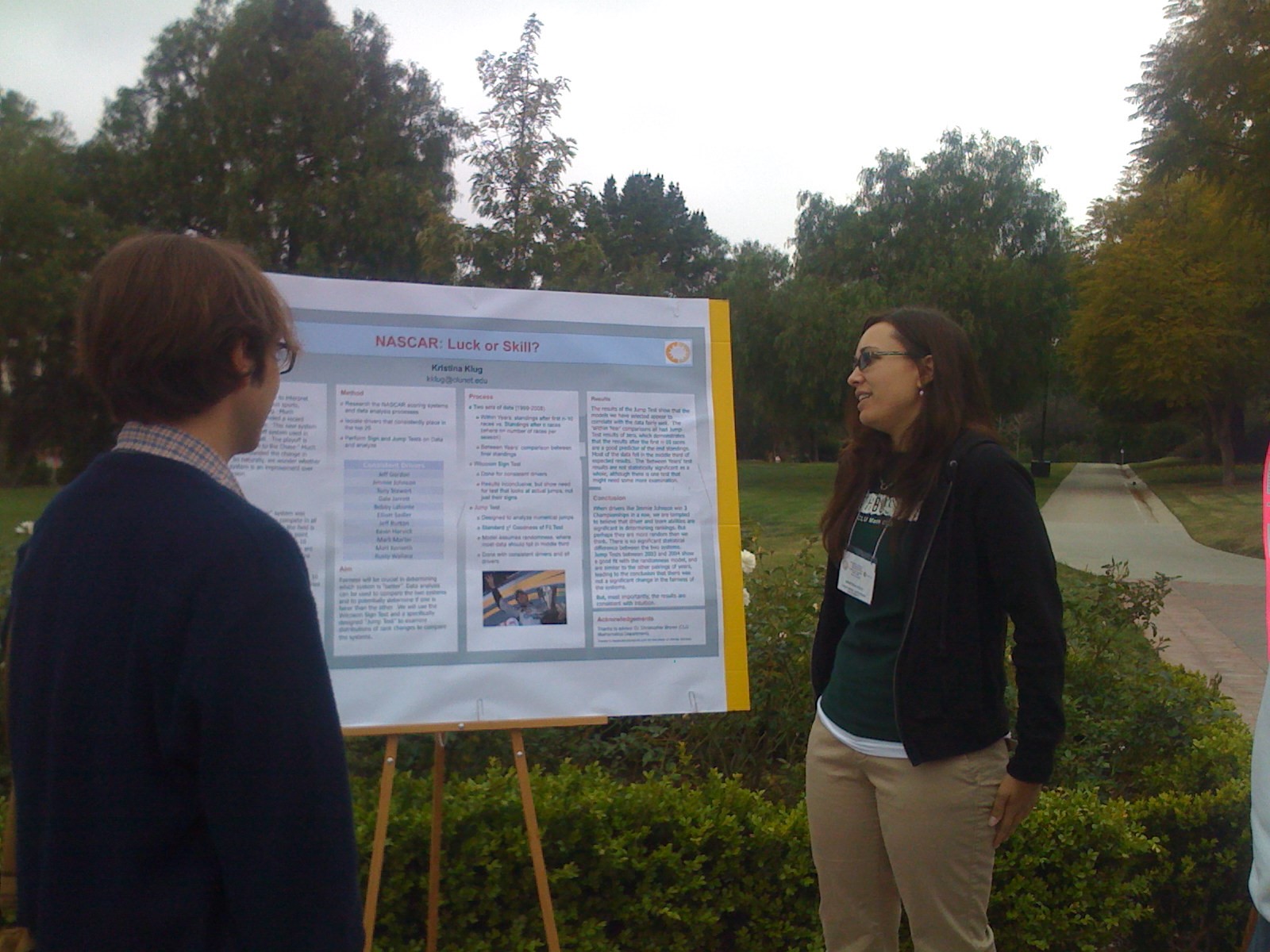
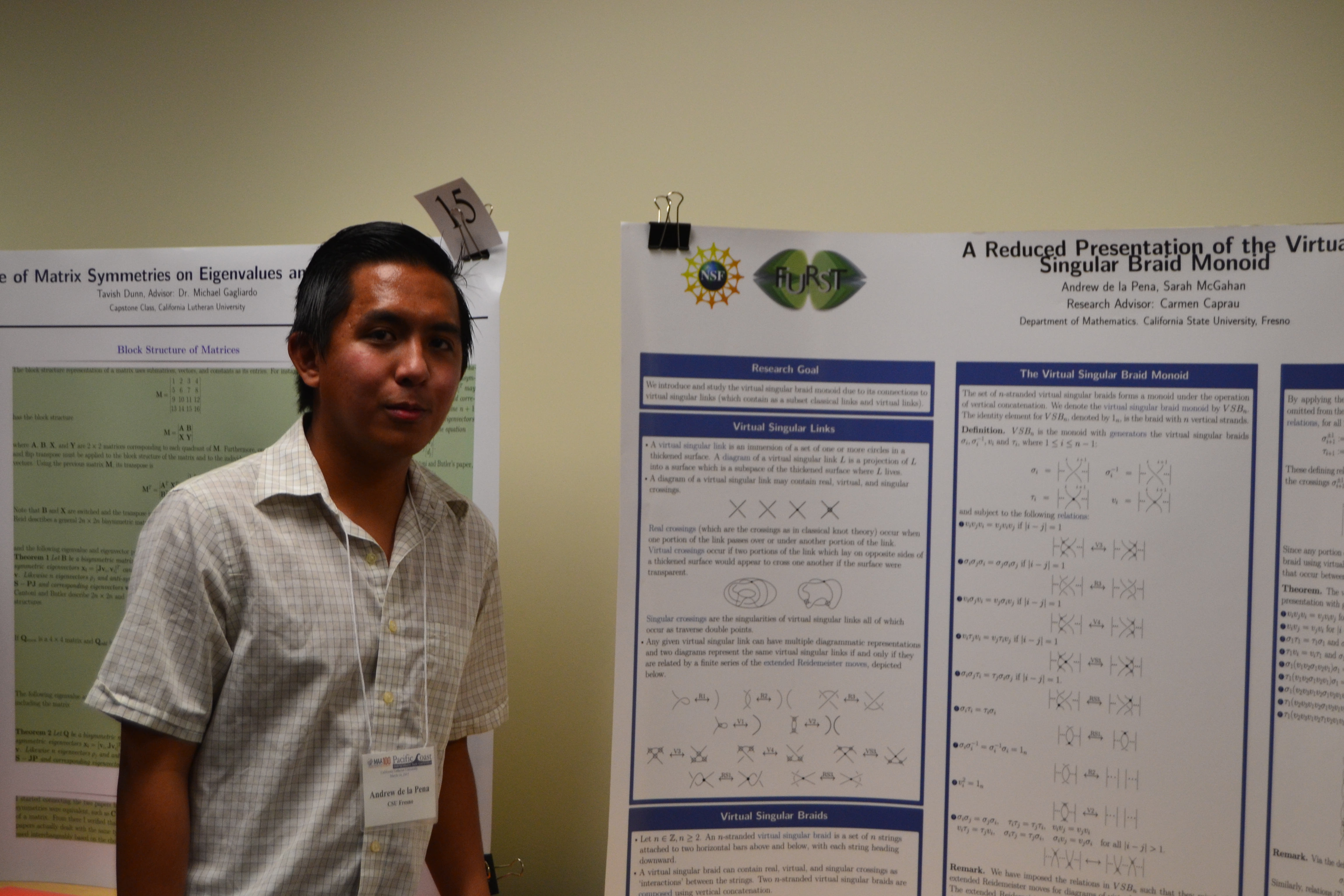
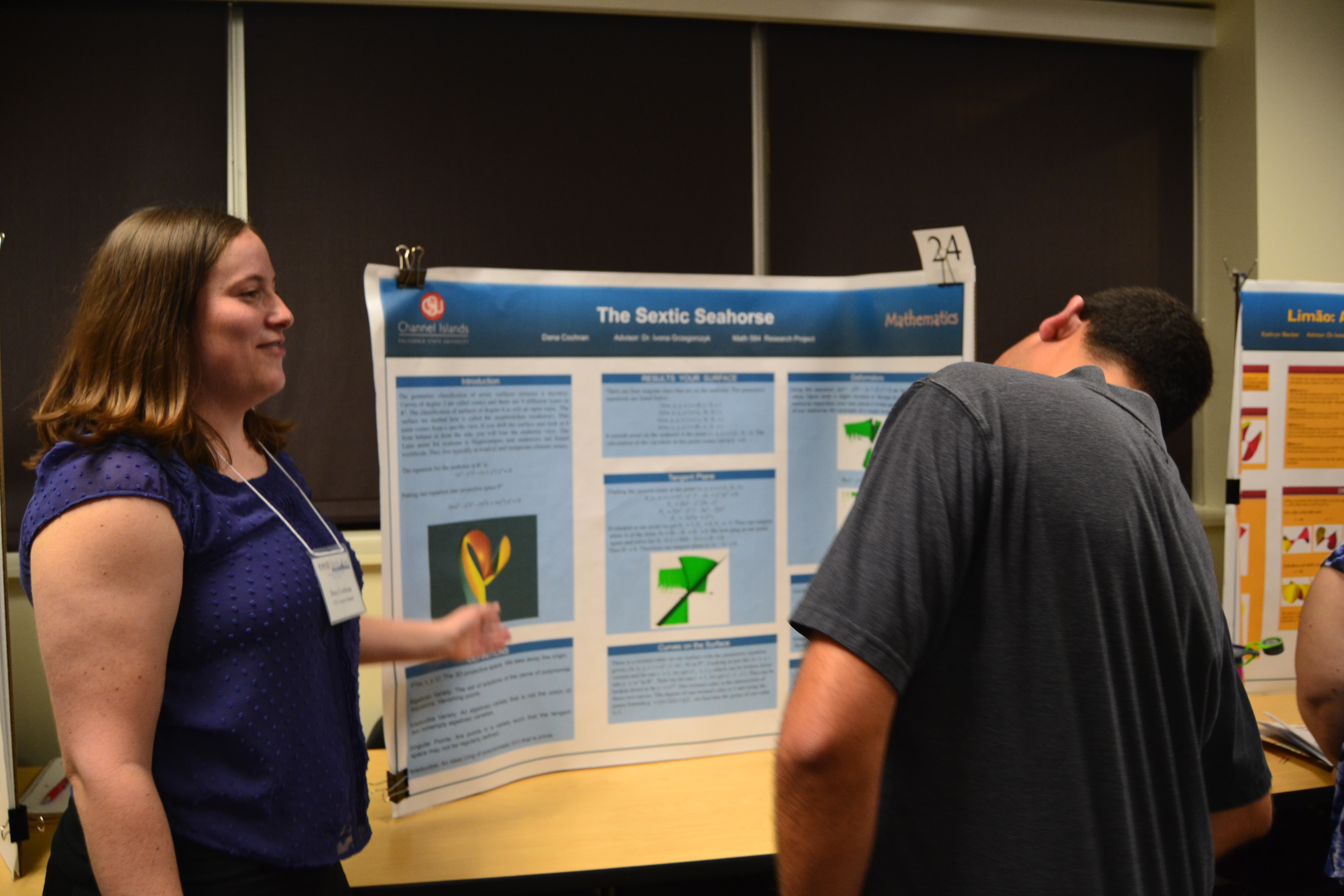
|
